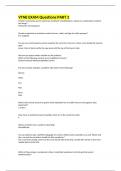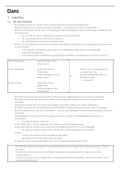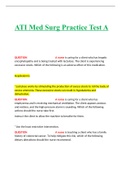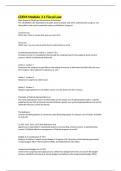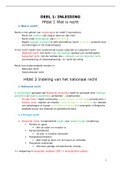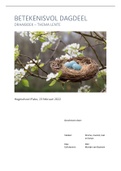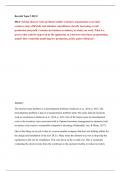Other
Unit 18- Task 3 Resub
- Institution
- OCR
This assignment covers P5- Explain how older people may be vulnerable to exploitation. M4- Explore stereotypes and attitudes that may be held about older people. D1- Analyse how the media contributes to reinforcing and also breaking the stereotypes of older people
[Show more]




